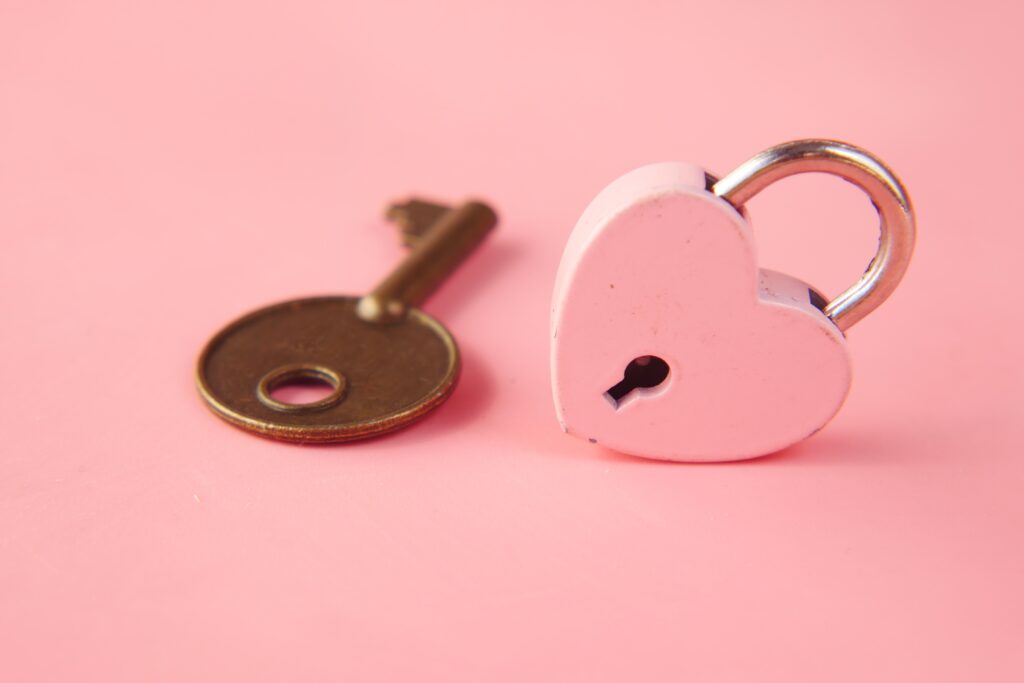Unlocking Happiness: Why You Don’t Need To Be a Master Key

Have you ever felt like you’re constantly reshaping your life to meet the expectations and needs of others? Do you find yourself thinking, “I can make this work,” while deep down, you know it’s not right for you? This is what it means to become a “master key.”
Before we delve into this analogy, let me provide some context. I’ve struggled with people-pleasing throughout my life, especially in romantic relationships. While I’ve been working on this with my therapist for years, it’s become particularly evident to me in recent months. In a recent therapy session, my therapist told me, “Cassie, you are not a master key.” Those words hit me hard, and it made me realize that I’ve felt this way for most of my life. Chances are, many of you can relate, so let’s explore this concept together.
Assessing Your “Master Key” Status
I understand that it might be uncomfortable to examine this topic, but I want to challenge you to evaluate your life and determine if you’ve become a “master key.” While I’m no expert, I hope to offer insights and strategies to address these feelings. Let’s dive in!

Understanding the Master Key Analogy
A master key, in the literal sense, opens every lock in a building. It’s a backup tool used in worst-case scenarios. Similarly, as individuals, we should strive to be proactive and avoid becoming everyone’s personal savior on a daily basis.
Remember Your Individual and Personal Key
It’s crucial to remember that you possess your individual and personal key. This key is the key to your life. How is your key designed? What components does it need to work seamlessly in your lifestyle? Take the time to reflect on these questions.
Recognizing the Urge to Save Everyone
It’s crucial to acknowledge that it’s not your job to save everyone. You’re meant to be an individual, not a personal savior for others daily. While the master key is used as a backup tool, the goal is to avoid having to use it. The same applies to you.

Digging Deeper into Your Feelings
If you’re wondering why you feel this way, it’s time for some deep introspection. When you find yourself changing how you feel, stop and ask, “Why am I doing this? What’s the underlying emotion?” For me, it often stems from a fear of loneliness, adapting to others to avoid abandonment, and deeper feelings of insecurity. Your reasons may differ, but this is a challenge worth confronting.
Identifying Triggers
Reflect on where, when, or with whom you find yourself becoming a “master key.” Identify the specific triggers. For me, it’s often in romantic relationships, where I agree to dates I don’t want to go on, or allow mistreatment, all in the hope of adapting to the other person. For you, it could be in your workplace or with a roommate. Find out where you compromise your values to fit into someone else’s lifestyle.
Unearth Your Values
Recognize and learn about your values – those non-negotiables that guide your life. Identifying them isn’t always easy, but once you do, it can profoundly impact how you approach situations and relationships. When you become a “master key,” you may forsake your values to make others comfortable, even when it feels wrong to you.
If you’d like me to explore values further in another post, comment “values” or reach out on social media.

The Key to Self-Sufficiency
Remember, you hold the key to your life’s unique design. Take time to reflect on your individual and personal key. Recognize that it’s not your responsibility to save everyone, and it’s certainly not your role to be anyone’s personal savior daily. By understanding and respecting your values, you’ll navigate life’s challenges while remaining true to yourself. Embrace the concept of being your own savior, investing your time and energy in self-improvement, and discovering the power in living authentically. This journey may be challenging, but it’s one that promises a fulfilling life and the opportunity to make a meaningful impact.
While I’m here to share insights, please remember that I’m not a professional therapist, so seeking professional help is always an option if needed. You’ve got this!
Until next time,
Cassie 🙂


